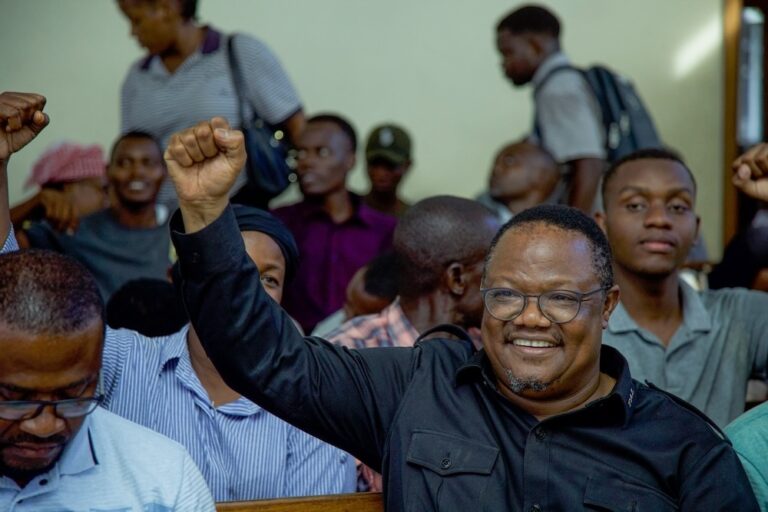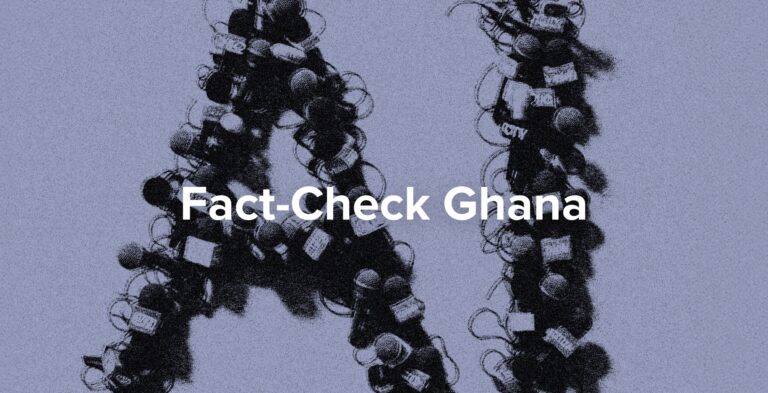January 2023 in Africa: A free expression round up produced by IFEX’s Regional Editor Reyhana Masters, based on IFEX member reports and news from the region.
The silencing of three critical voices on the African continent has invigorated media freedom and human rights advocates to vigorously rail against the continued culture of impunity.
Three leading lights extinguished
It was a bleak start to the new year for Africa, with the suspicious death of Rwandan editor John Williams Ntwali and the murders of Cameroonian journalist Martinez Zogo and Swati human rights lawyer Thulani Maseko of eSwatini. Within the space of five days, three outspoken and critical voices on the continent were silenced forever.
Cameroon – where telling the truth is dangerous
This series of tragic incidents began with the abduction on 17 January of Martinez Zogo, the Cameroonian director of privately-owned Amplitude FM and host of the very popular radio show Embouteillages. His naked and mutilated body was found just a few days later on 22 January, with visible signs that he had been tortured.
His murder took place against the backdrop of a country where targeted abductions, brutal assaults, deaths and “other systematic human rights violations towards human rights defenders, journalists and lawyers” are a familiar feature of the landscape.
Just a few hours after he was abducted, online news site ZAM coincidentally carried a detailed and in-depth article by investigative journalist Chief Bisong Etahoben and reporter Elizabeth BanyiTabian about the danger of exposing corruption in Cameroon.
Referring to the abduction and assault of investigative journalist Paul Chouta, an armed assault on publisher Jean Francois Channon, and the abduction and death of Samuel Wazizi, the writers state: “Telling the truth about the Biya regime is a very dangerous activity in Cameroon.”
As Human Rights Watch reports, Zogo “regularly exposed corruption through his work and, in the days before he was killed, spoke on the air about threats he faced.”
Farewell to the last of Rwanda’s independent journalists
Described as the last remaining independent journalist in Rwanda, James William Ntwali is said to have been killed when a speeding car crashed into the motorcycle on which he was a passenger.
This explanation is being treated with scepticism because, as HRW reports: “two weeks after the alleged accident, Rwandan authorities have failed to provide a police report, the exact location of the alleged accident, any photo or video evidence, or detailed information on the others involved in it.”
A fellow journalist – Bihibindi Nuhu – told Voice of America that he had met with Ntwali the day before his death. “He looked cautious and switched off his phone before we started talking. He said phones could not be trusted. He told me that all the doors on which he knocked were closed but he was determined to face life. His death was so sudden.”
The death of a great soul
Just two days later and many borders away, the shocking news that Swati lawyer and activist Thulani Maseko (see IFEX’s 2021 profile here) had been fatally shot while watching television with his wife and children, reverberated around the globe.
At the time, Maseko was playing a critical role as chairperson of the Multi-Stakeholder Forum – a coalition of non-State actors – advocating for a process of national political dialogue aimed at resolving the security and political challenges in eSwatini.
Maseko, better known for his role as one of the founding members of the Southern Africa Defenders Human Rights Network (SouthernDefenders), was relentless in exposing human rights abuses in his country. As a principal applicant and lawyer, Maseko was instrumental in setting aside some clauses of eSwatini’s infamous Suppression of Terrorism Act and Sedition and Subversive Activities Act in 2016.
His spirit was unbreakable. As he once wrote while in prison: “In spite of the prison hardships, we are not deterred. We are not discouraged. We are not fazed. We are not shaken. We are not intimidated. Yes, we are not broken.”
Just a day before Maseko was murdered, King Mswati III issued a warning: “people should not shed tears and complain about mercenaries killing them.”
Common threads
Common threads ran through the lives and deaths of these three advocates.
Zogo, Ntwali, and Maseko held their governments to account and vociferously spoke out against corruption, government excess and human rights abuses. Their actions put them at great risk, but they persevered.
Ntwali’s passing has been described as a “huge loss for Rwanda’s challenging media landscape,” while Maseko is mourned as a leading light, extinguished far too soon. Zogo was a critically acclaimed voice in a country where the “crackdown on both protest and journalism has meant that Cameroonian media has less and less room to manoeuvre.”
Warnings and intimidation were a part of their daily lives. Zogo was receiving “daily death threats from people he accused of being corrupt,” reports Deutsche Welle, while Ntwali, editor of the privately owned newspaper The Chronicles and founder of the YouTube channel Pax TV-Ireme News, frequently received threats in connection to his critical journalism. Maseko had been receiving threats for a year before he was killed.
The deeply felt impact of their work in their respective countries nurtured strong support, evidenced by the overwhelming and steady stream of tributes that poured in over social media platforms.
The safety of journalists and human rights defenders has moved from the fringes and now become a mainstream issue as advocates galvanise support from all sectors in their campaigns for justice. This time, the pushback from public and civil society organisations has been strong and steady. Solidarity has taken on various forms, with the most common being tributes and statements put out by regional networks. Nationally, people have paid homage in alternative ways.
Weary of African governments failing to take action in cases of crimes committed against journalists and human rights defenders, civil society organisations have responded with an emphasis on collective action, and a demand for authorities to conduct in-depth and independent investigations into the deaths.
Quoting regional and international frameworks, 90 civil society organisations issued a statement asking the Rwandan government to conduct an “independent, impartial, thorough, and transparent investigation” into the death of Ntwali.
As chairperson of the Southern African Development Community Troika, Namibian President Hage Geingob issued a statement on 25 January, calling on the eSwatini kingdom to ensure that those suspected of murdering Maseko are brought to justice.
The communiqué of the extra-ordinary SADC troika summit held in Windhoek on 31 January reiterated “SADC’s condemnation of the killing . . . and urged the Government of the Kingdom of Eswatini to conduct a swift, transparent and comprehensive investigation into the killing of Mr. Maseko.”
“I condemn the killing of Martinez Zogo. I welcome the government’s announcement that it is investigating this case, and I call on the authorities not to let this crime go unpunished. Journalists play an essential part in nurturing and upholding democratic governance. They deserve every necessary protection.” Audrey Azoulay, Director-general of UNESCO
Deutsche Welle reports that “radio stations throughout Cameroon on Monday aired the words the journalist had hurled at corrupt rulers shortly before his death: “You will surely kill me. The only thing you can do is finish me off. This is [President] Paul Biya’s country, and everybody looks on and allows this to happen, because people are scared.”
Musicians from Yaoundé released a song as a tribute to Zogo, while media practitioners across the country observed the request made by the Cameroon Journalist Trade Union (CJTU/SNJC) and on 25 January, they all wore black.
President Hassan kicks off the new year with lifting a ban
Tanzanian opposition leader Tundu Lissu’s return to the country after five years in exile comes on the back of President Samia Suluhu Hassan’s announcement that she was lifting the six-year-old ban on the holding of rallies by opposition parties.
Since she took power in March 2019, after Magufuli’s unexpected death, President Hassan has sought to break from her predecessor’s hard line policies, and is slowly introducing changes.
However, her two years as head of state have been marked by contradictions. While seemingly opening political space, the arrest of Freeman Mbowe, chairperson of Tanzania’s main opposition party Chadema, in 2021, just before he was about to address a conference, raised doubts as to her sincerity. He was eventually released in early 2022, after spending more than seven months in custody on terrorism charges.
While she lifted the ban on four newspapers – Mwanahalisi, Mawio, Mseto, and Tanzania Daima – the government has yet to amend the 2016 Media Services Act, as announced by Minister for Information, Communication, and Information Technology, Nape Nnauye in 2022.
As Aikande Kwayu noted in an April 2021 interview with the Institut Montaigne: “We need to remember that President Hassan belongs to the same political party as the late President Magufuli. Electoral and power politics might somehow force her politics to change in the future, for the purpose of maintaining power. It is only time that will show us how sustainable her politics and style is.”
In brief
Burundi: Media freedom advocacy organisations are calling for the release of Floriane Irangabiye, who was sentenced to 10 years imprisonment on what Reporters Without Borders considers “a spurious charge of endangering the integrity of the national territory”. Irangabiye was detained on 30 August when she returned to Burundi to visit her family after living in exile for five years in Rwanda.
The Comoros: In an interview with GIJN, Comorian investigative journalist Hayatte Abdou shares her experiences as a reporter working in a country “dominated by state media and where press freedom is under duress reporter. She won acclaim for her courageous reporting into the killing of fellow Comorian journalist Ali Abdou, whose suspicious death was brushed aside by authorities.
Mozambique: The International Press Institute report that Mozambican police officers ignored journalist Rosario Cardoso’s press accreditation and proceeded to savagely assault him after he refused to pay a bribe. He was hospitalised for injuries he sustained in the assault.
Nigeria: A steadily declining media landscape has further deteriorated as the country gears up for its seventh general election, slated for the end of February. In their assessment, the Media Foundation for West Africa says that President Muhammadu’s “administration has utterly failed to deliver on the assurances of press freedom.”



